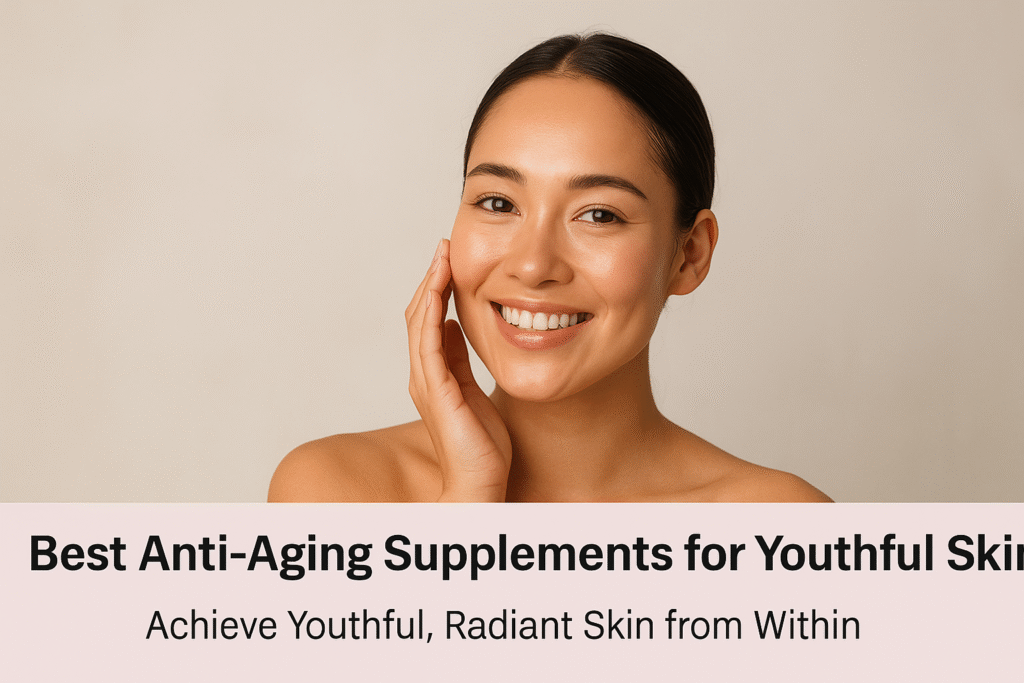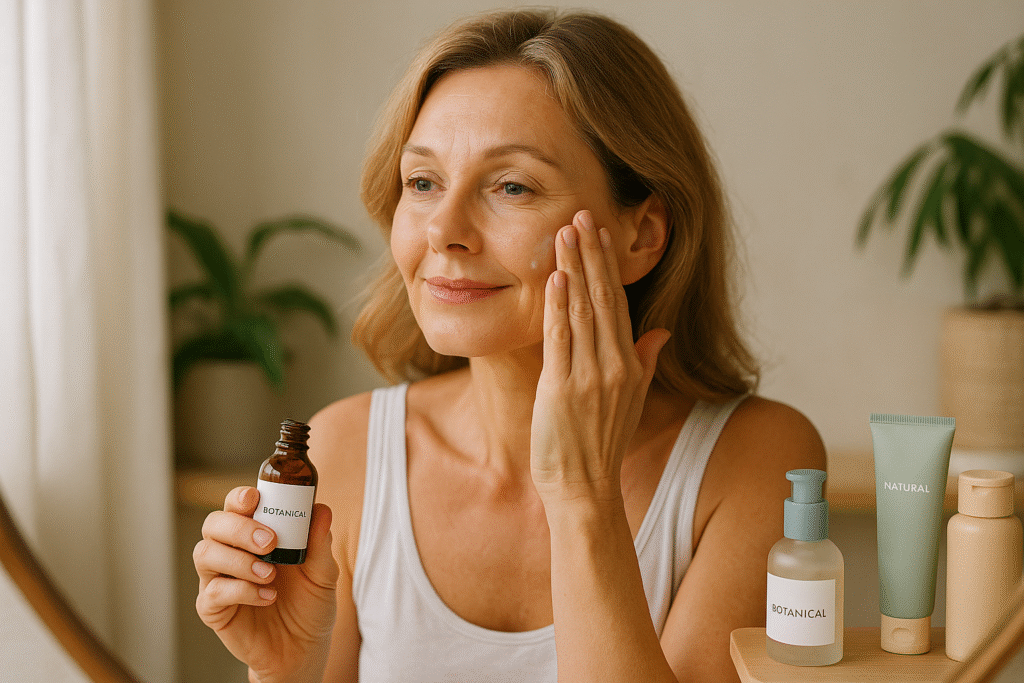If you’ve been searching for ways to keep your skin firm, your joints smooth, and your hair strong—there’s a good chance collagen came up in the conversation. From powders and pills to bone broth and skincare serums, collagen boosters are everywhere. But with all the hype, how do you know what actually works?
The truth is, not all collagen supplements are created equal. And some methods don’t increase collagen production at all—they just sound convincing on the label. In this guide, we’ll break down the science behind collagen, explore which boosters deliver real results, and help you build a smarter routine to support your skin, joints, and overall health.
Let’s uncover what’s fact, what’s fiction, and what really fuels your body’s collagen from the inside out.
Understanding Collagen and Why It Matters
Collagen is the most abundant protein in your body—and it’s what gives your skin elasticity, your joints mobility, and your connective tissues strength. Think of it as the scaffolding that holds everything together. But like many things, collagen production naturally declines with age—starting as early as your mid-20s.
By the time you hit your 40s, your body may be producing up to 25% less collagen, which shows up as wrinkles, sagging skin, joint discomfort, or brittle hair and nails. This is why collagen boosters have become so popular—they’re designed to replenish or stimulate collagen from within.
Your lifestyle also plays a big role. Smoking, sun exposure, poor sleep, and even excess sugar can break down collagen faster, while certain nutrients can help rebuild it.
What Does Collagen Actually Do in the Body?
Collagen isn’t just about looking youthful—it plays a functional role in your health. It helps maintain skin elasticity, strengthens hair and nails, cushions your joints, and supports muscle structure. When collagen declines, signs of aging become more visible, and joint or mobility issues may arise.
Different Types of Collagen and Why They Matter
There are at least 16 types of collagen, but Types I, II, and III are the most common:
- Type I: Supports skin, bones, and tendons
- Type II: Found in cartilage, crucial for joint health
- Type III: Supports organs, muscles, and arteries
Knowing which type you’re targeting can help you choose the right supplement or food source for your goals.
💡 Quick Tip: Want to support natural collagen production daily? Add vitamin C-rich foods like oranges, kiwi, or red bell peppers to your diet—vitamin C is essential for collagen synthesis.
Top Natural Ingredients That Boost Collagen
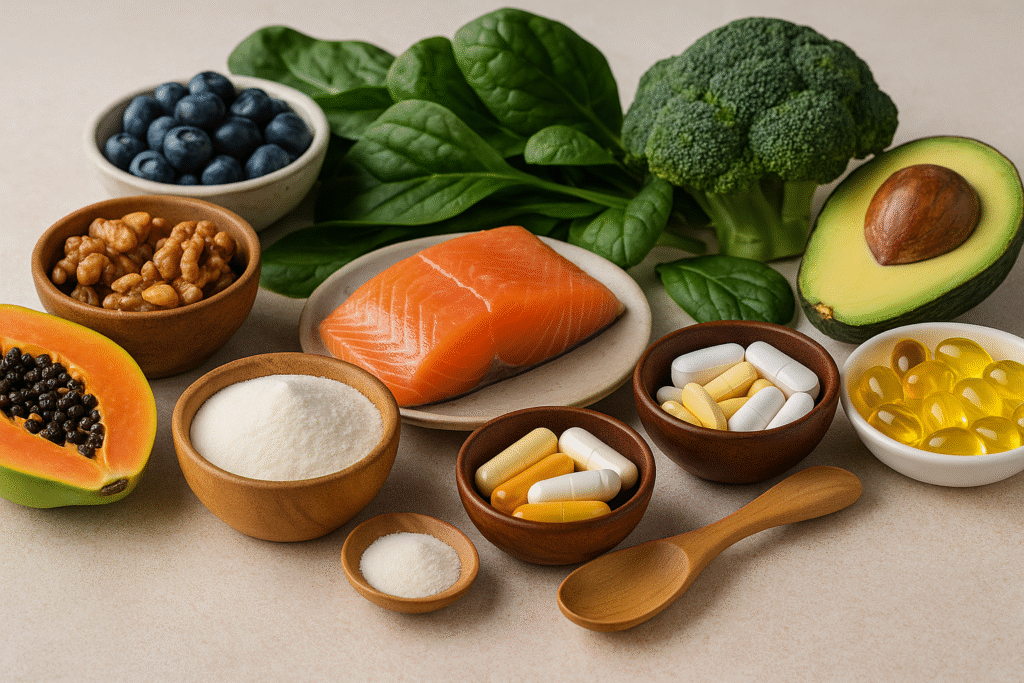
You don’t always need fancy supplements to support your collagen levels—some of the most powerful boosters are already hiding in your kitchen or your favorite smoothie. These natural ingredients fuel your body’s collagen production, protect existing stores, and often come with bonus benefits for your skin, joints, and energy.
Vitamin C: The Essential Collagen Co-Worker
Without enough vitamin C, your body simply can’t produce collagen—period. It’s a vital cofactor in collagen synthesis and also protects existing collagen from oxidative damage. A deficiency doesn’t just slow production—it can actually cause collagen breakdown.
Best food sources include:
- Citrus fruits
- Red bell peppers
- Strawberries
- Kale and broccoli
Even if you’re taking a collagen supplement, pairing it with vitamin C can significantly enhance absorption and results.
Silica and Zinc: The Underrated Mineral Duo
Silica strengthens the connective tissue matrix that supports collagen, while zinc helps stabilize collagen fibers and speeds up wound healing. They’re often forgotten in mainstream collagen talk—but your body relies on them to make that youthful bounce possible.
Where to find them naturally:
- Silica: cucumbers, oats, bananas
- Zinc: pumpkin seeds, chickpeas, shellfish
📌 Did You Know?
Bone broth, often praised for its natural collagen, also contains glycine and proline—two amino acids essential for collagen synthesis. Homemade versions tend to be more nutrient-dense than shelf-stable ones.
Do Collagen Supplements Really Work?
Collagen powders, capsules, drinks—they’re all over your feed and your local health store. But are they worth the hype? The short answer: they can work, but only under the right conditions.
Let’s break down how these supplements function inside your body and what really determines their effectiveness.
Hydrolyzed Collagen vs. Gelatin: What’s the Difference?
Most supplements on the market contain hydrolyzed collagen peptides, which are broken down into smaller amino acid chains to make absorption easier. Gelatin, a cooked form of collagen, also contains these amino acids—but is less bioavailable.
Hydrolyzed collagen is generally more effective for skin, joint, and nail health, especially when taken consistently and paired with vitamin C.
The Role of Bioavailability in Results
Bioavailability refers to how well your body can absorb and use a substance. With collagen, this can vary depending on:
- The source (marine, bovine, chicken, etc.)
- Whether it’s taken with supporting nutrients like vitamin C and zinc
- The presence of digestive enzymes in your gut
How Collagen Is Absorbed in the Body
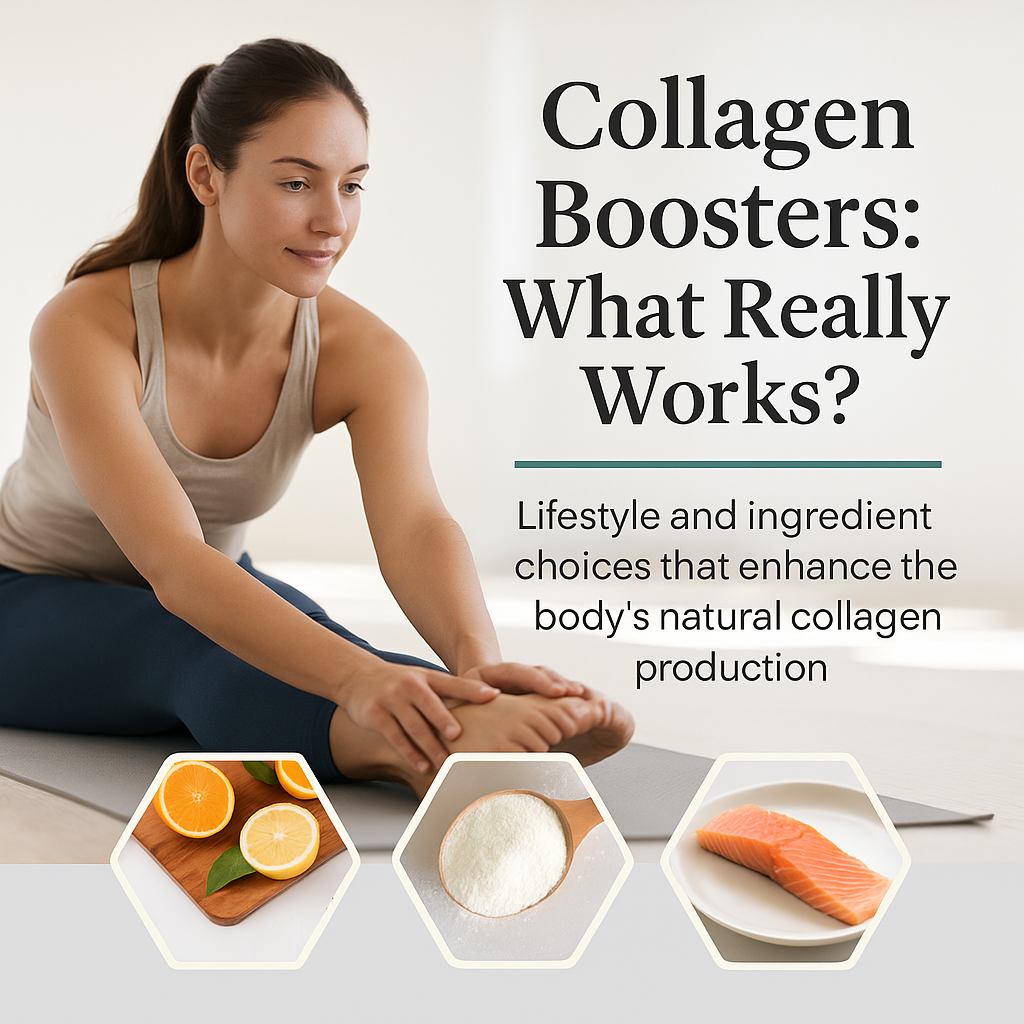
Once ingested, collagen peptides are broken down into amino acids and dipeptides, which then travel through your bloodstream. From there, your body decides how to use them—often prioritizing areas with tissue damage or high turnover, like joints and skin.
Studies show these peptides can accumulate in the skin and cartilage within 4 to 8 weeks, especially when taken daily and on an empty stomach.
✅ Expert Summary:
Collagen supplements work best as part of a consistent, nutrient-supported routine. They’re not an overnight fix—but they can significantly improve skin elasticity, hydration, and joint comfort over time.
Lifestyle Factors That Affect Collagen Production
Even the best collagen supplements won’t work if your lifestyle is actively sabotaging your body’s natural production. Daily habits—from how you sleep to what you eat—can either accelerate collagen breakdown or help preserve and rebuild it.
Sleep and Stress: The Silent Collagen Killers
Lack of sleep reduces your body’s ability to repair tissue and slows down collagen regeneration. Chronic stress raises cortisol levels, which has been shown to break down collagen and elastin, speeding up skin aging and inflammation.
Support your collagen while you sleep:
- Aim for 7–9 hours of quality rest
- Create a bedtime wind-down routine
- Try calming adaptogens like ashwagandha or magnesium
Diet and Sugar Intake: Friend or Foe?
A nutrient-poor diet and high sugar consumption are among the fastest ways to age your skin from the inside out. Sugar attaches to collagen in a process called glycation, making it stiff and prone to breakage. On the flip side, antioxidant-rich foods help protect and restore collagen fibers.
Choose these collagen-friendly foods:
- Leafy greens, berries, citrus fruits
- Omega-3-rich foods like salmon or chia seeds
- Herbs like turmeric and green tea
💡 Quick Tip: Hydration matters more than you think. Dehydrated skin appears older and less elastic. Aim for at least 8 cups of water per day to keep collagen-rich tissues plump and supple.
Collagen-Boosting Skincare and Topical Treatments
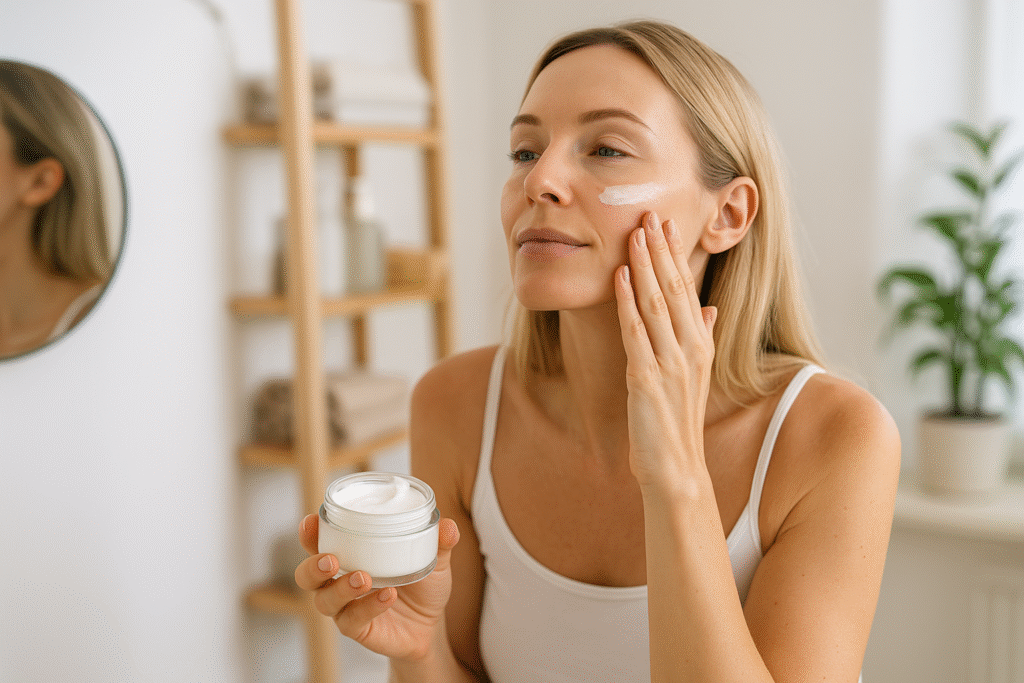
While collagen supplements work from the inside, certain skincare treatments can stimulate collagen production directly in the skin. The key is knowing which ingredients and tools have actual scientific support—and which ones are just marketing fluff.
Retinol and Peptides: Proven Collagen Activators
Retinol, a derivative of vitamin A, is one of the most researched ingredients for stimulating collagen synthesis in the skin. It works by accelerating cell turnover and promoting fibroblast activity (the cells that make collagen). Similarly, peptides—small chains of amino acids—signal your skin to produce more collagen and elastin.
Look for products that include:
- Retinol or retinaldehyde (gentler version)
- Matrixyl or copper peptides
- Bakuchiol (a natural alternative to retinol)
Microneedling and LED Therapy: Technology Meets Skin Biology
Microneedling involves tiny controlled skin punctures that trigger your body’s wound-healing response, resulting in a surge of collagen and elastin. When paired with serums, it also improves ingredient absorption. Red light therapy, on the other hand, uses LED wavelengths to stimulate fibroblast activity and reduce inflammation.
Best results occur when:
- Treatments are done consistently (every 4–6 weeks)
- Combined with topical actives like vitamin C and peptides
- Skin is properly prepped and hydrated
📌 Did You Know?
Over-the-counter collagen creams don’t actually contain real collagen that penetrates the skin. The molecule is too large. Instead, look for products that stimulate your skin’s own collagen production.
How to Build a Collagen Routine That Works
Creating a collagen routine isn’t just about buying a trendy supplement or using a fancy cream. It’s about aligning your nutrition, habits, and treatments into a plan your body can actually respond to—consistently.
Timing and Consistency Matter More Than You Think
Taking collagen sporadically won’t give you visible results. Collagen production is slow and cumulative, so results typically appear after 4 to 8 weeks of consistent use. The best time to take collagen is often on an empty stomach in the morning or after workouts—when your body is primed to use it for repair.
Create consistency with these strategies:
- Pair it with a morning ritual (smoothie, tea, or coffee)
- Set a recurring reminder to take your supplement
- Track changes in skin or joint health monthly
Stacking Smart: Combine Internal and External Boosters
A powerful routine supports collagen both inside and out. Supplements provide the building blocks, while skincare and treatments stimulate targeted production.
Build your stack:
- Daily collagen peptides + vitamin C + zinc
- Topical retinol or peptides at night
- Weekly red light therapy or monthly microneedling
The synergy of these efforts leads to better skin texture, fewer lines, and stronger nails and joints over time.
✅ Expert Summary:
It’s not about finding one magic product—it’s about finding the right combination of habits, ingredients, and timing that works for your body. Collagen success is built one small step at a time.
Main Takeaways (Bullet Points)
- Collagen is essential for skin, joints, and connective tissue—but it declines with age.
- Natural boosters like vitamin C, zinc, and silica enhance collagen production.
- Supplements work best when taken consistently and paired with supporting nutrients.
- Lifestyle factors like sleep, stress, and sugar directly impact collagen levels.
- Topical ingredients like retinol and peptides stimulate collagen in the skin.
- The best results come from combining internal and external collagen strategies.
Conclusion
Collagen isn’t just a beauty trend—it’s a structural protein that plays a major role in how we look, feel, and age. While aging is natural, supporting your body’s collagen production can help you feel more confident in your skin, maintain mobility, and strengthen everything from joints to hair and nails.
The key is to focus on what really works: combining quality supplements with collagen-friendly nutrition, smart skincare, and healthy habits. With patience and consistency, you can create a routine that delivers long-term results—and it all starts with knowing what your body truly needs.
External References
- Cleveland Clinic – What Is Collagen?
- Healthline – Can Collagen Supplements Really Improve Skin Health?
Further Reading
To complement your understanding of collagen health, explore our guide:
The Best Anti-Aging Supplements for Youthful Skin


